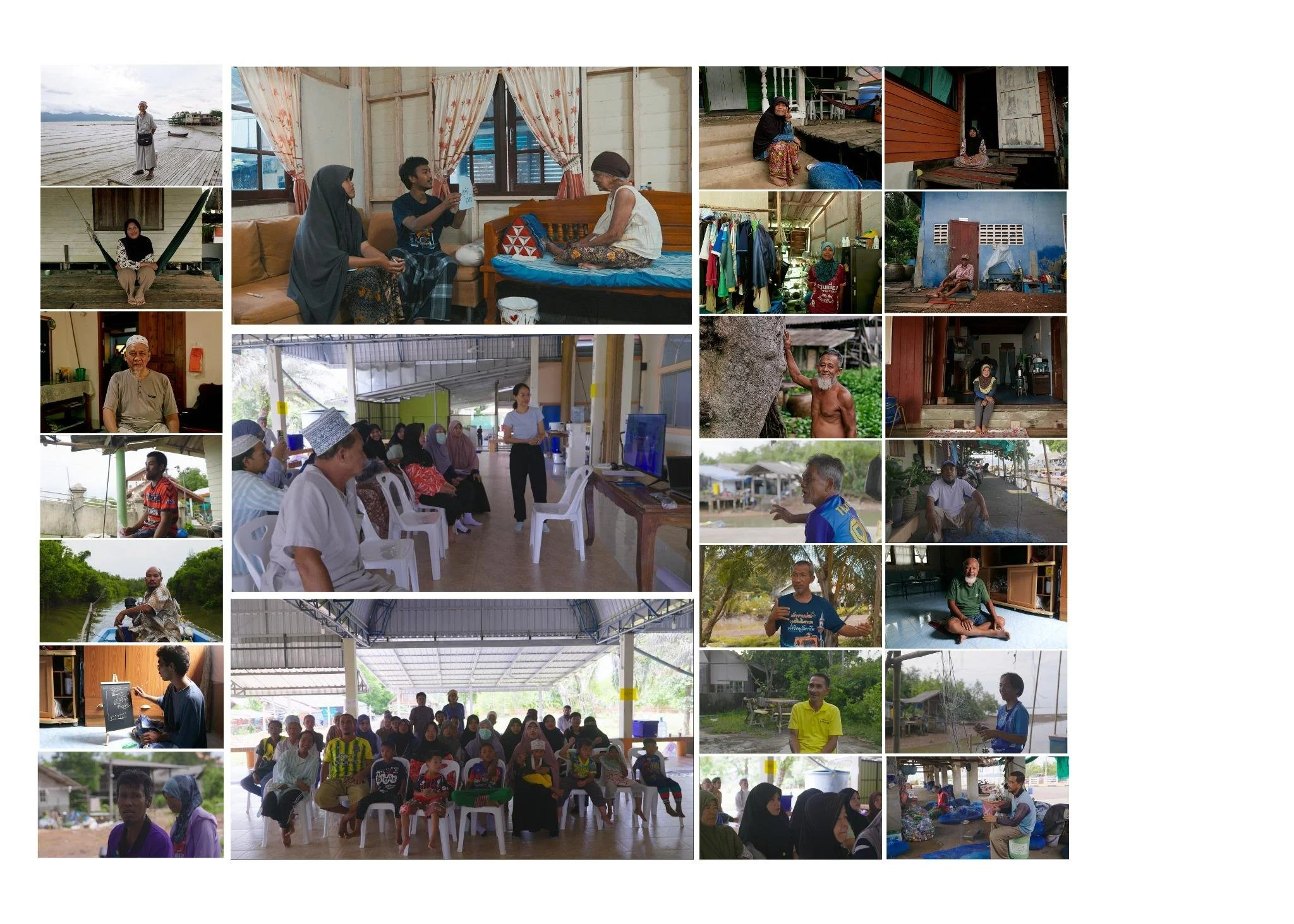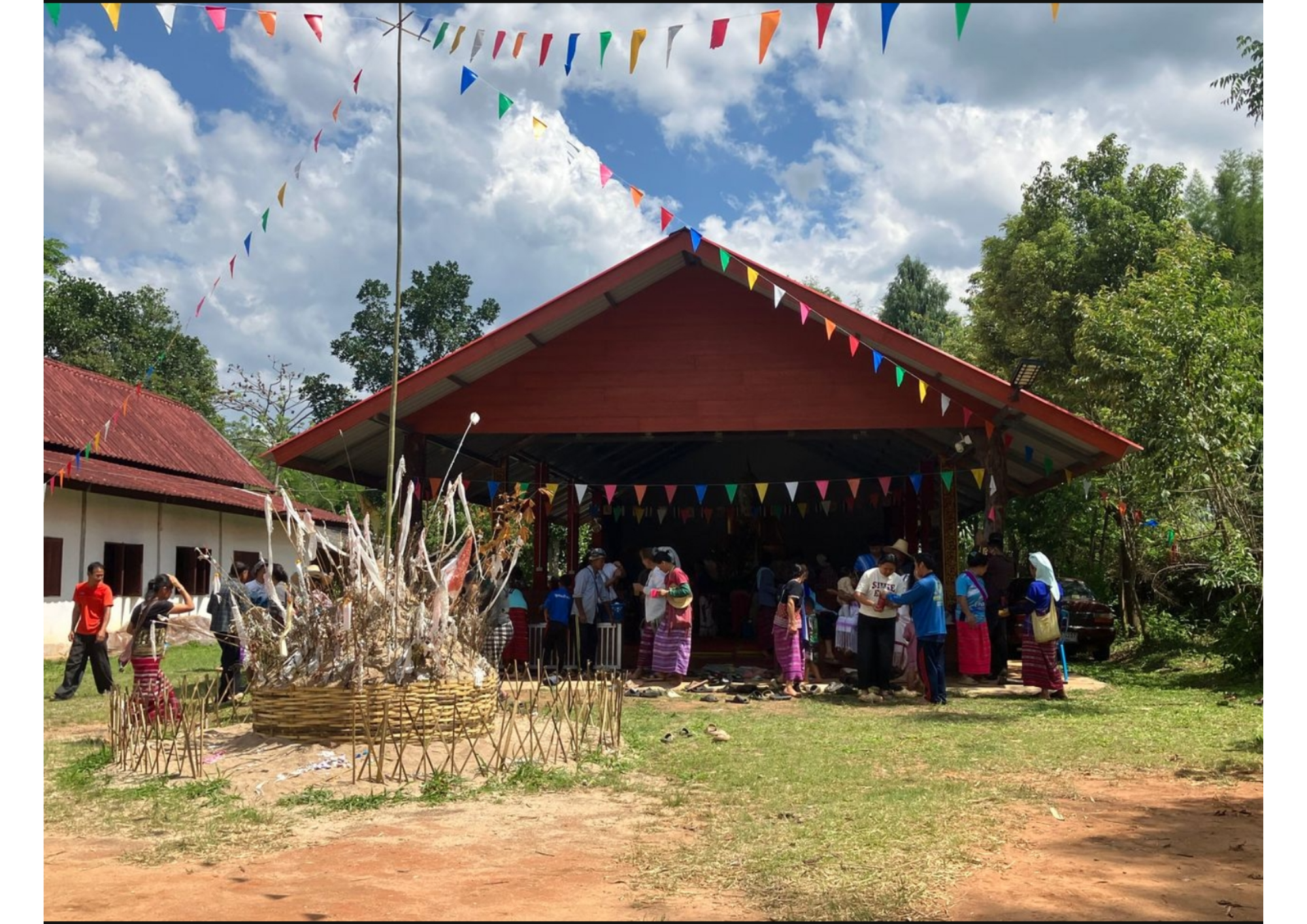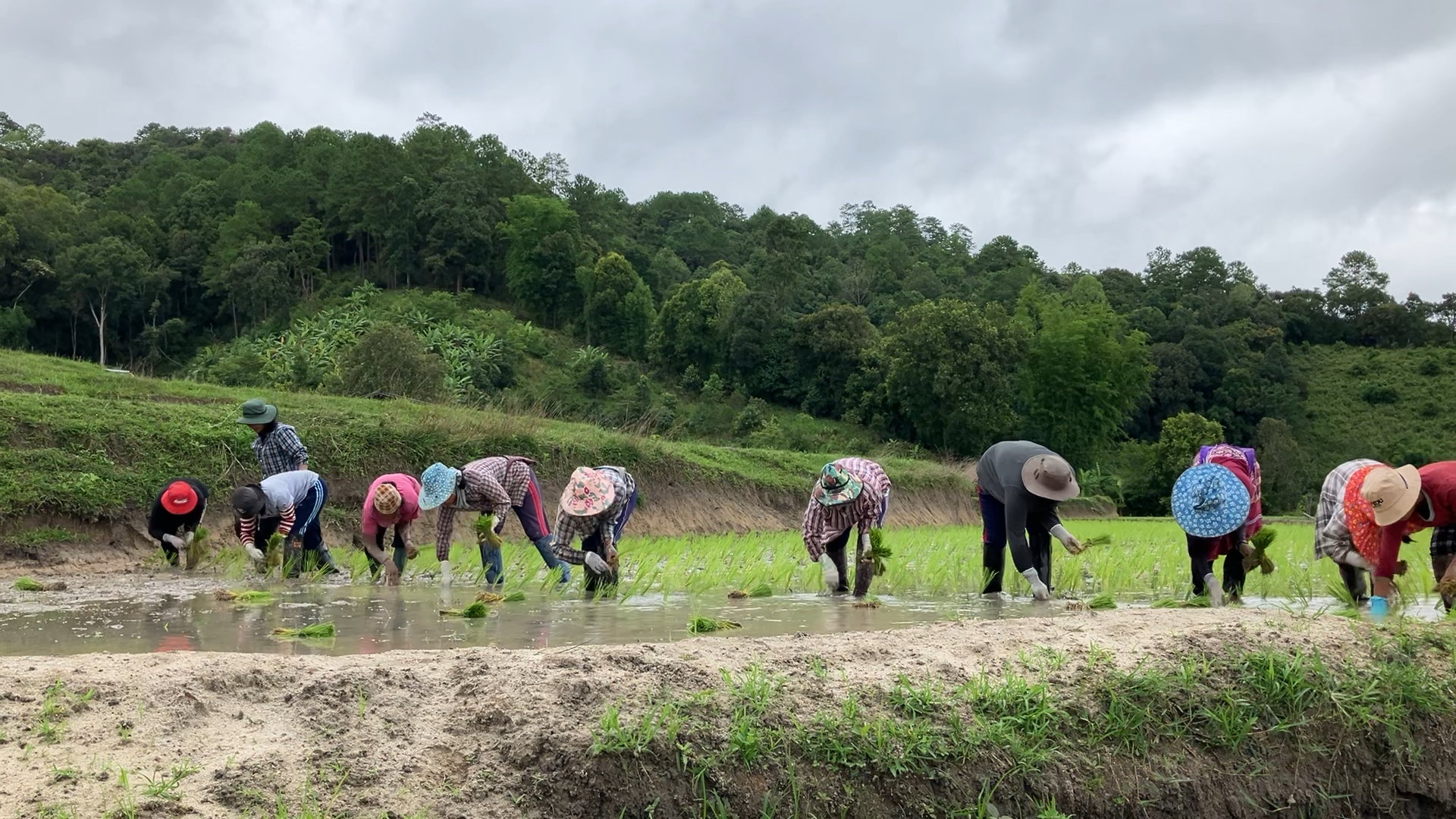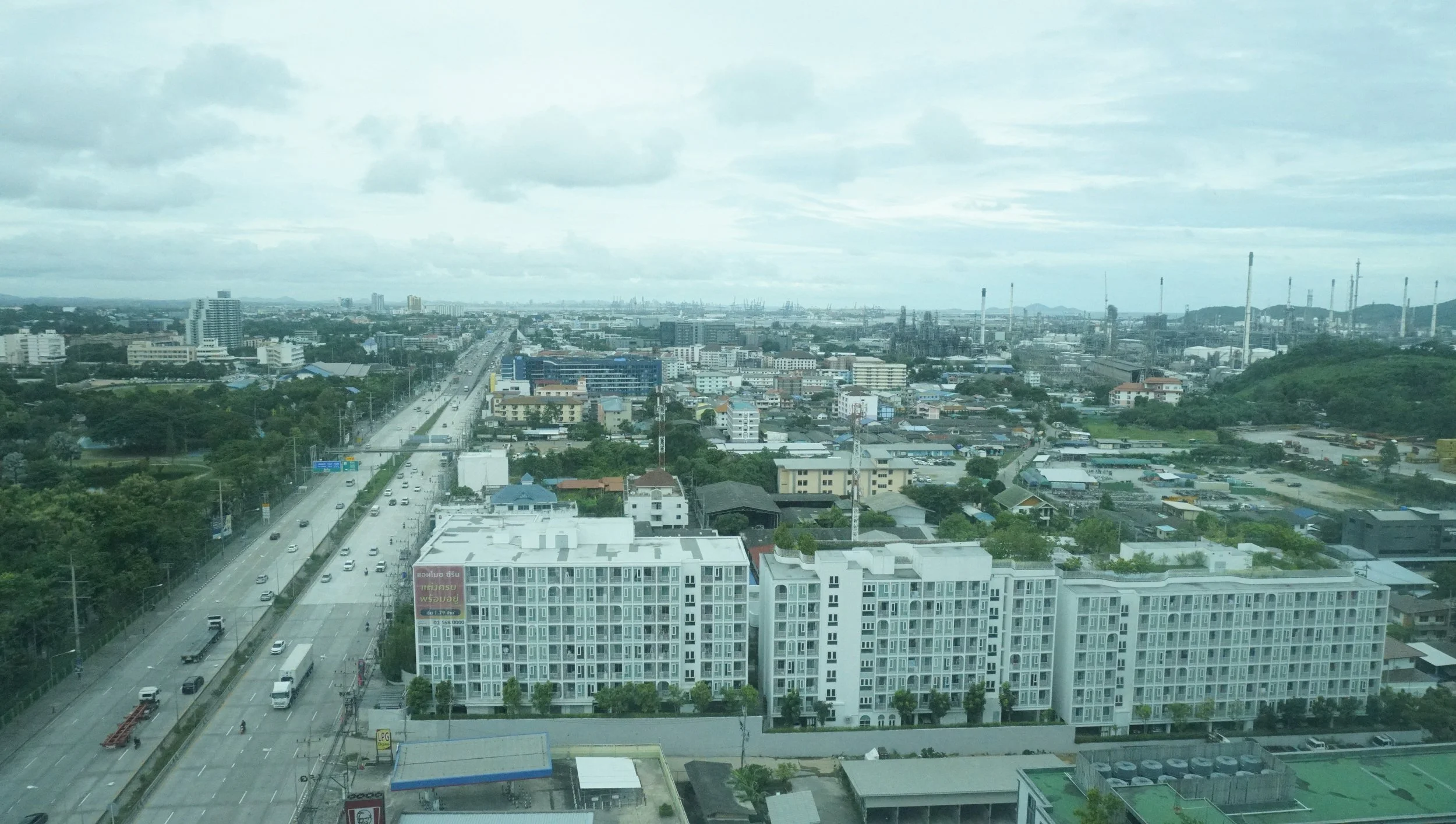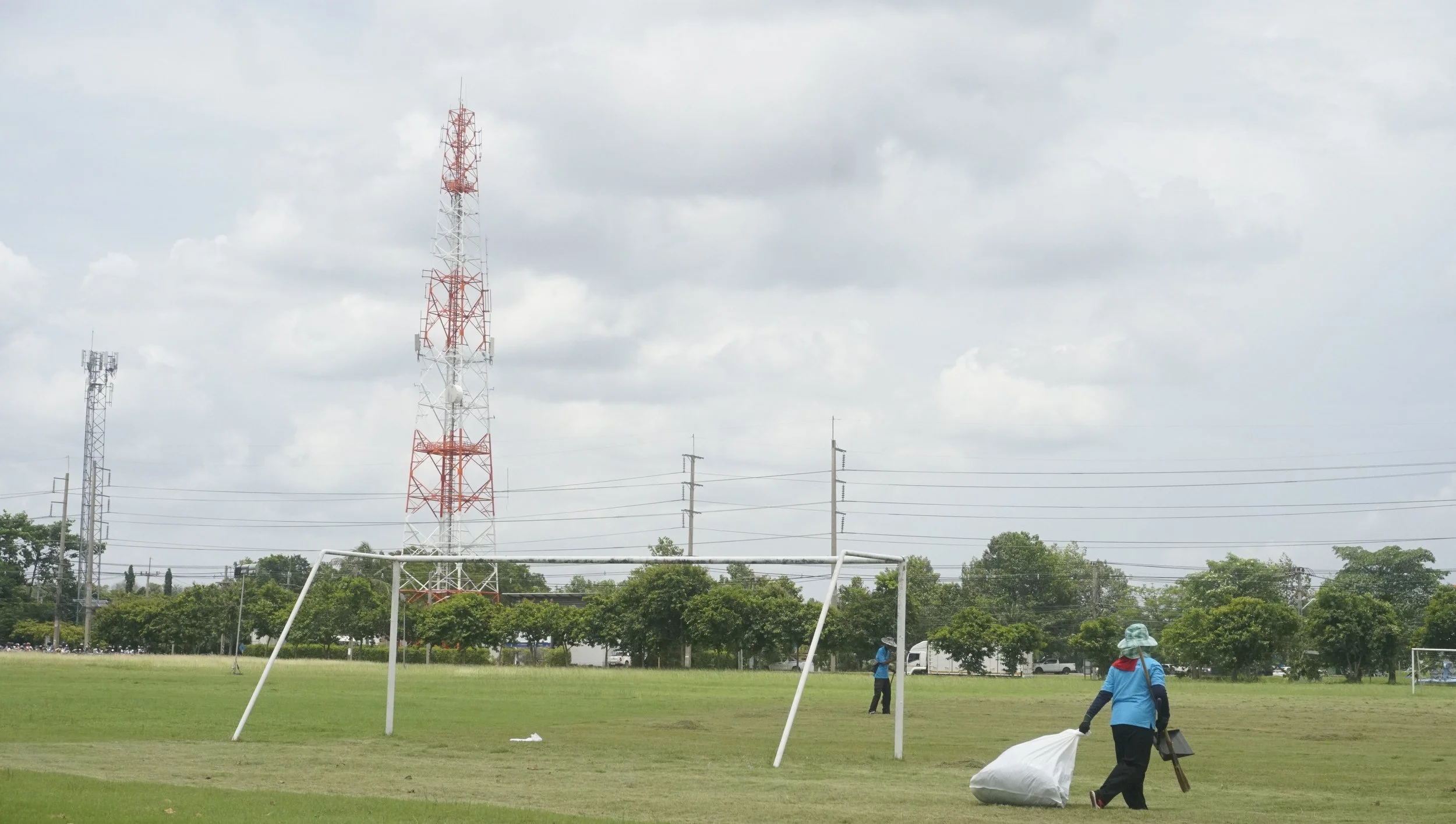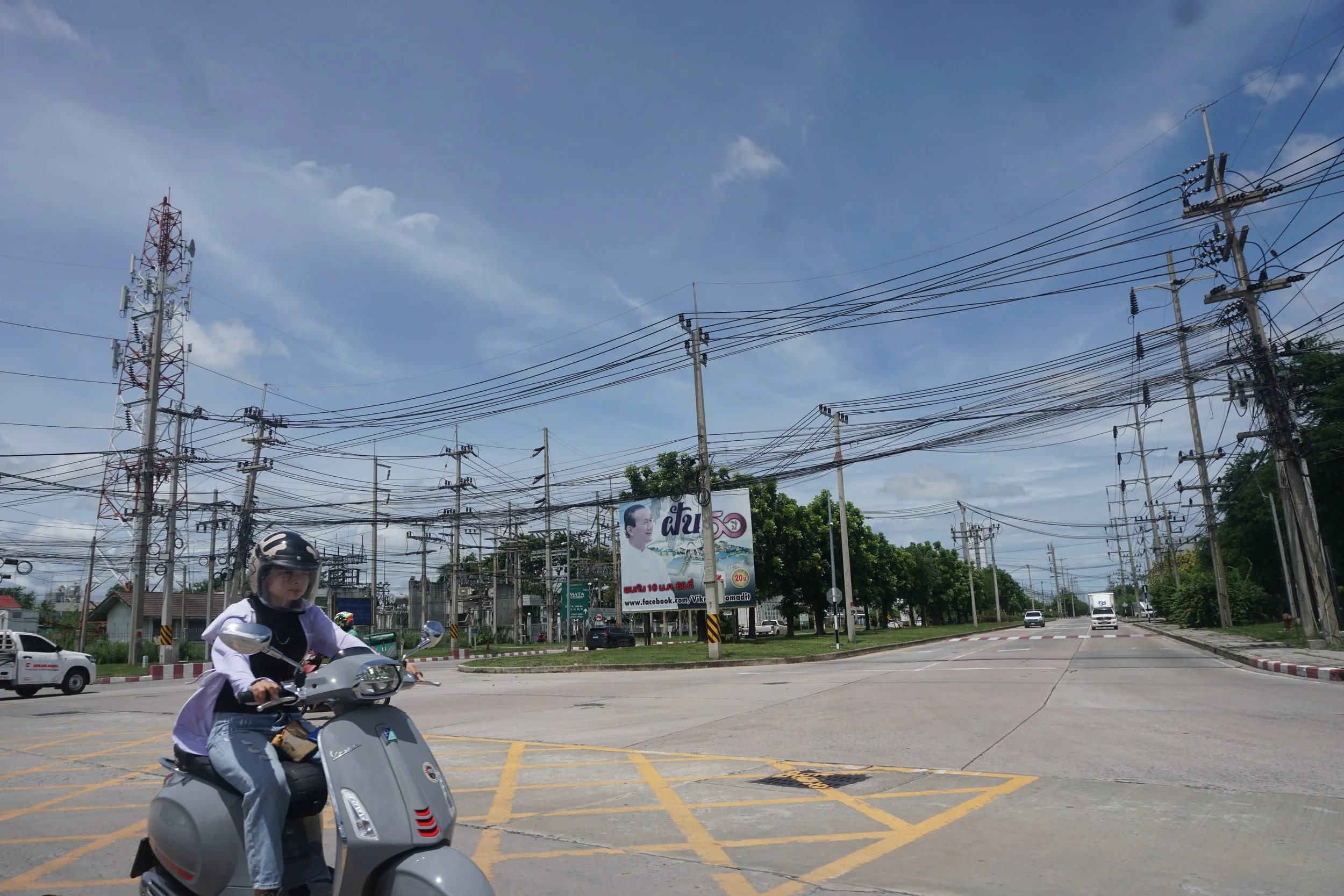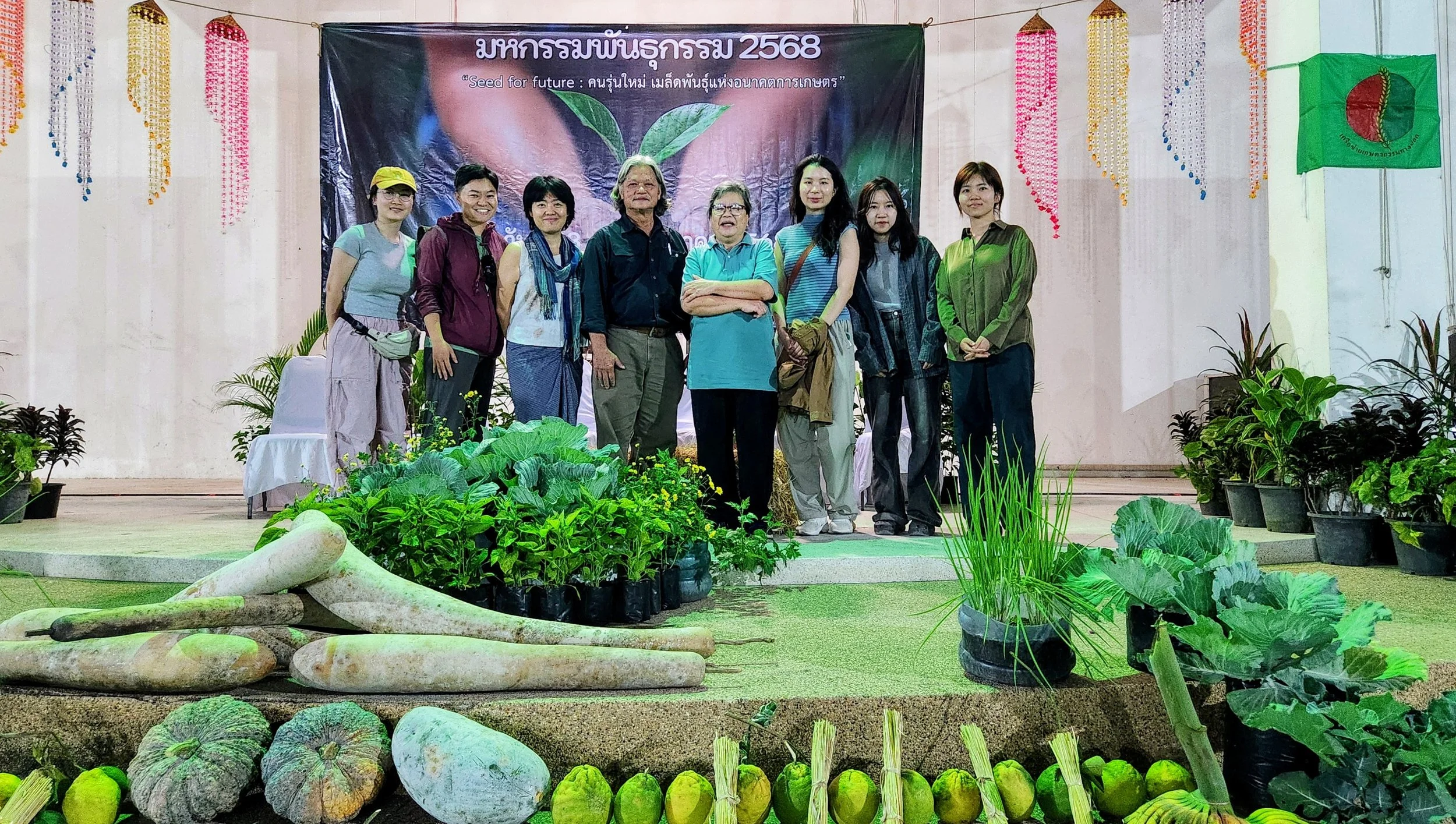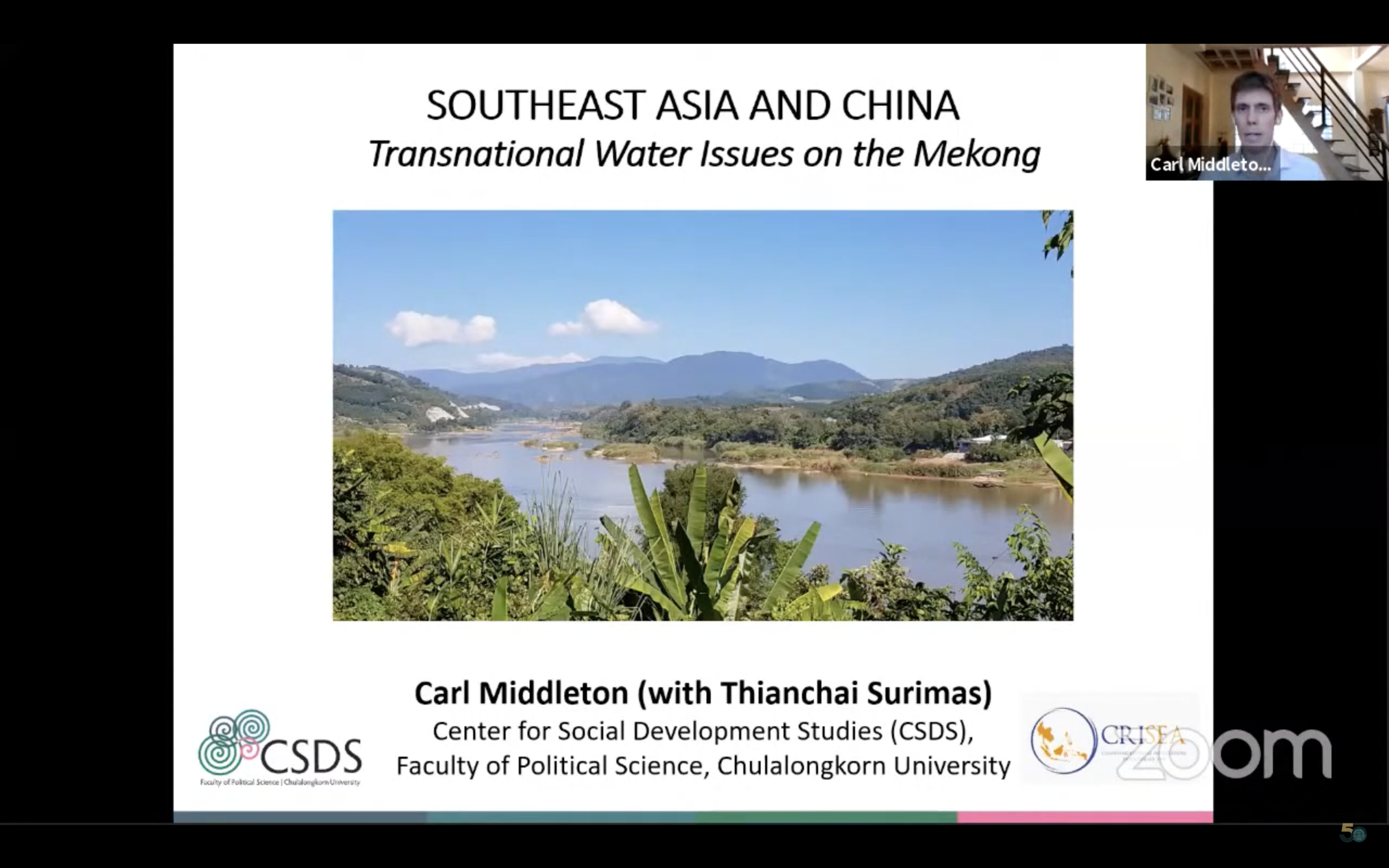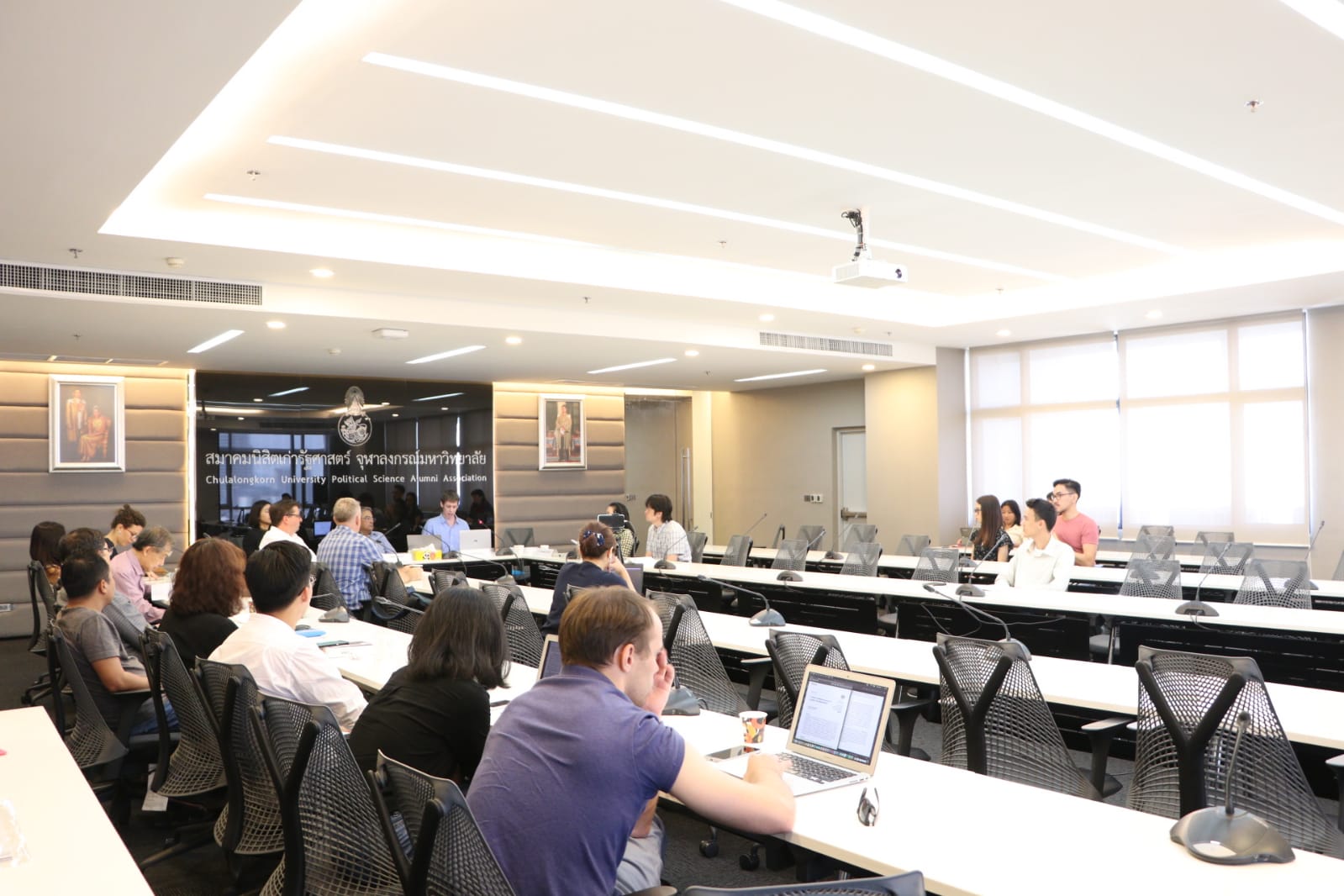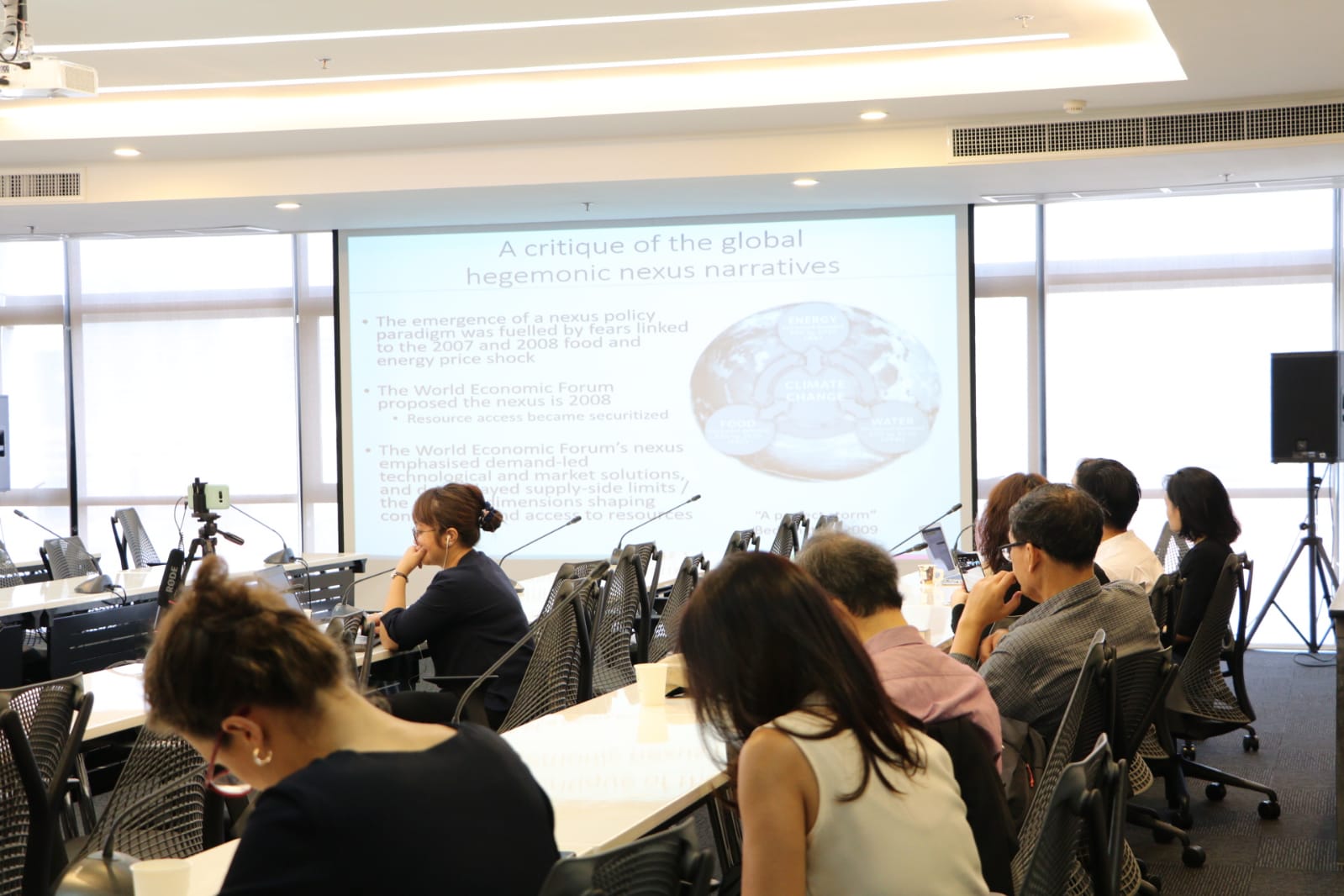By Yu Yin, Fellowship Coordinator, Center for Social Development Studies CSDS
In early February 2025, the Center for Social Development Studies organized a dynamic 5-day workshop for the Just Future Mekong Fellows and their research partners on research design. The goal of the workshop was to provide participants with the skills, knowledge, and strategies they need to create real, sustainable change through collaborative research and practical action. Over the course of a week, the workshop guided participants through key concepts in research design, sustainability practices, and real-world problem-solving, while also offering hands-on learning experiences, including visits to the programs partnering Thai host organizations.
The workshop opened with welcoming remarks from Dr. Thanapan Laiprakobsup, Vice Dean for Research at Chulalongkorn University’s Faculty of Political Science. His words set the tone for the Just Futures Mekong Fellowship Program, an initiative designed to promote justice and sustainability in Thailand and across the Mekong Region. The fellowship itself spans six months, during which each fellow teams up with a research partner from a host organization to co-develop research projects that align with the organization’s goals. These projects aim to not only address pressing sustainability challenges but also deliver tangible contributions to policy and practice in the region.
Three Days Interactive Classroom Workshops
We had three days dedicated to an immersive classroom experience, where participants engaged in informative lectures from the program lead, Dr. Carl Middleton. Based on the lectures, fellows had dynamic discussions on their research topics and collaboratively worked with their research buddies to co-design the research. The sessions were structured to provide a comprehensive understanding of research design and its role in advancing sustainability transformation and work on their research design step by step.
The workshop commenced with an introduction to its overarching goals: to foster co-produced knowledge, enhance research design skills, and bridge the gap between academic research and practical sustainability solutions. Participants were encouraged to think critically about how their work can contribute to systemic change. The objectives were to build the capacity of research fellows and research buddies to undertake design and co-produced research; produce a draft research design to be finalized post-workshop in collaboration with the partner organization and mentor; and cultivate a community of shared learning across the fellowship cohort and partner organizations.
Co-Produced Knowledge for Sustainability Transformation
A key theme of the workshop was the importance of co-production in research. Several different kinds of knowledge production were introduced, ranging from that of government policy makers to local communities, to explore design thinking and knowledge co-production for sustainability research, which begins with a shared understanding of research problem between actors and shared definition of research question and design, and includes context-based, pluralistic, goal-oriented and interactive elements.
Fellows discussed their experiences in engaging stakeholders, communities, and practitioners, which can lead to more impactful and contextual outcomes. Case studies and group discussions highlighted the value of integrating diverse perspectives into the research process.
The research framework was also introduced including the role of concepts in research, how to formulate research questions, how to search for relevant literature, the types of research tools available, and the meaning of analysis and triangulation. Each of these subjects was followed by time for fellows’ exercises, presentations, and feedback. The workshop also covered discussions on research ethics, theories of change, and its connection to research for development.
The process not only enabled fellows and research partners to learn and develop the research design, but it also strengthened the collaboration between research fellows and their researcher buddies, instilling confidence for future research work.
Organizational Visits
The workshop dedicated two days to meeting with local host organizations involved in the fellowship program. There are five organizations in total: Local Alike, the Sustainable Agriculture Foundation, the Sustainable Development Foundation, Toward Organic Asia, and the Climate Finance Network Thailand. Although they all work on promoting sustainability in Thailand, their fields of operation and approaches are quite different, representing the diversity of civil society in Thailand.
Local Alike
Our first stop was Local Alike, a social enterprise dedicated to empowering local communities through sustainable community-based tourism. During the visit, they shared their approach to engaging with communities, which involves enhancing their understanding of sustainable practices, identifying unique tourism highlights, and building their capacity in hospitality and tourism management. The marketing team at Local Alike plays a crucial role in promoting these community-based tourism activities to both domestic and international audiences, ensuring wider visibility and participation. In addition to generating income through community tours, Local Alike also offers professional services to government agencies and consulting for companies interested in community-based tourism development. This multifaceted approach positions Local Alike as a model for sustainable tourism, demonstrating how it can empower communities, foster skill development, and create sustainable economic opportunities. By integrating community engagement, capacity-building, and strategic marketing, they not only deliver authentic tourism experiences but also contribute to the long-term resilience and growth of local economies. Their innovative methods underscore the transformative potential of community-driven tourism initiatives.
The Future Just Mekong fellow aims to delve deeper into Local Alike’s community-based tourism model, analyzing their strategies for community engagement, capacity-building, and marketing to identify opportunities within the Chinese tourist market. The research will also explore how community-based tourism contributes to sustainable community development in the long term, examining both the short-term experiences and long-term lessons learned. By understanding these dynamics, the fellow seeks to uncover insights that can enhance the promotion of such tourism experiences to Chinese travelers while supporting the enduring empowerment and resilience of local communities in Thailand.






